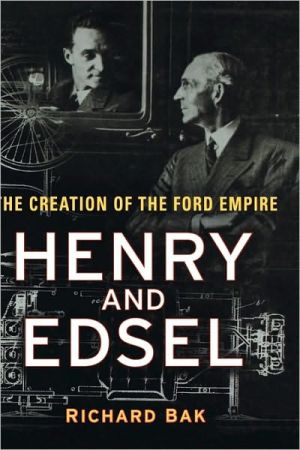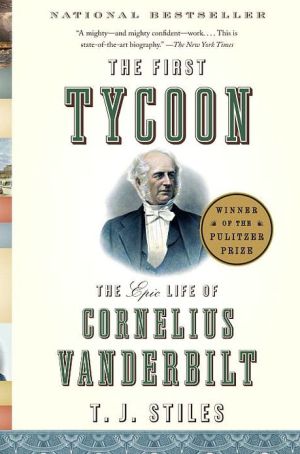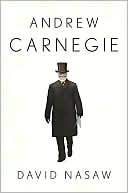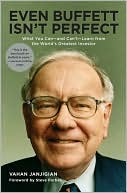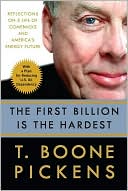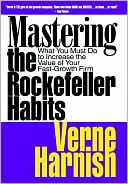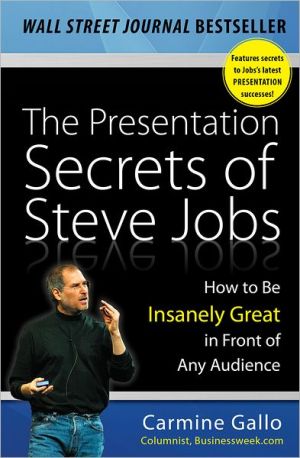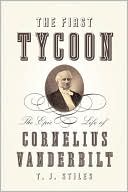Henry And Edsel
One hundred years after a rawboned mechanical genius transformed his vision of "a car for the masses" into one of the world's first major automobile manufacturers, a great story remains to be told. It is a multigenerational saga of fathers and sons and the epic struggle for control of an industrial empire.\ Henry and Edsel is the first biography to focus on both the legendary founder of the Ford Motor Company and the son who led the company's transformation from successful manufacturer to...
Search in google:
One hundred years after a rawboned mechanical genius transformed his vision of "a car for the masses" into one of the world’s first major automobile manufacturers, a great story remains to be told. It is a multigenerational saga of fathers and sons and the epic struggle for control of an industrial empire. Henry and Edsel is the first biography to focus on both the legendary founder of the Ford Motor Company and the son who led the company’s transformation from successful manufacturer to business empire. Author Richard Bak offers a daring new perspective on the human drama that changed the shape of Ford. He examines the ongoing friction between Henry and Edsel over adapting to a changing competitive environment and lays bare the stark contrasts between the two men–both their personalities and their approach to the design, construction, and marketing of automobiles. In these pages, Henry Ford emerges as a complex and self-contradictory man who was not entirely comfortable in the new world that he had done so much to create. Renowned as an innovator, he resisted desperately needed changes in his own company–everything from painting cars any color other than black to providing financing for car buyers. A self-styled friend of the working man, he despised labor unions and appointed the ruthless Henry Bennett to squash any hint of unionization at Ford.Among the many surprises in this fascinating exploration of the ultimate family business run by the quintessential business family is its portrait of Edsel Ford. Often viewed as a weak and ineffectual manager, Edsel is revealed as a gifted, levelheaded, and imaginative businessman with a keen sense of where the market was headed. When the company’s very survival was at stake during the tumultuous 1920s and 1930s, it was Edsel who envisioned and pushed for the daring changes that turned Ford into a powerful, modern corporation. Another compelling character in this classic American story is Henry Bennett, often referred to as Ford’s second son. A hard-drinking barroom brawler in his youth, Bennett rose through sheer toughness and force of will to become Henry Ford’s heir apparent. The climactic struggle among these three very different men to control the vast and growing Ford empire was one of the most dramatic conflicts in the history of American business.Complete with compelling portraits of important Ford competitors, executives, and family members, as well as a fascinating array of family and official company photos, Henry and Edsel is must reading for anyone interested in business, the auto industry, or the fascinating world of the early twentieth century. Publishers Weekly Bak (Detroit Across Three Centuries) gives new life to the well-known story of industrialist Henry Ford (1863-1947) and his rise from Michigan farm boy to the powerful head of an automobile manufacturing company. Deeply interested in anything mechanical, Ford left the family farm to become a machinist's apprentice, an engineer, a race-car builder and, in 1903, founded the Ford Motor Company. In 1908, the company produced the Model T, a simply designed car for the average family that was wildly successful and made Ford a millionaire. Responsible for implementing the assembly line in the mass production of cars, Ford also initially provided his workers with a living wage. In this engrossing history, the author traces the power grabs at Ford Motor, focusing particularly on the relationship between Ford and his only son, Edsel, both of whom spring to life here. Although Ford initially planned to have Edsel take over the company, he relied on the advice of Henry Bennett, the tyrannical security chief, who thought that Edsel was a weakling. According to Bak, Edsel was a cultured, talented man and an expert at designing cars. He did not share his father's hatred of unions that translated into repeated violence against organizers. Ford outlived his son, who died of cancer, a death many believed to have been hastened by conflicts with his father. Despite their problems, Ford loved his son and was deeply grieved by his death. Fully documented here (though not for the first time) is Ford's virulent anti-Semitism, which he expressed through articles in the Dearborn Independent. Photos. (Oct.) Copyright 2003 Reed Business Information.
Chapter 1. Farmboy, TinkererChapter 2.The Horse is Gone Chapter 3. Rear View Mirror: Ford the "Automobileer" in 1900 Chapter 4. Who Can't Afford a Fordmobile? Chapter 5. Hunka Tin Chapter 6. The Five Dollar Day Chapter 7. Rear View Mirror: The Crystal Palace in 1914 Chapter 8. War on Several Fronts Chapter 9. Joy Ride Chapter 10. Farewell, Lizzie Chapter 11. Chronicle of the Neglected Truth Chapter 12. The Little Man in the Basement Chapter 13. Rear View Mirror: The Crown Prince at Work and at Play Chapter 14. Airships and Time Machines Chapter 15. An Invitation to Organize Chapter 16. Bullets and Frescoes Chapter 17. A Matter of Style Chapter 18. The Overpass Chapter 19. Rear View Mirror: Battling "Fordism" in 1937 Chapter 20. A New Social Order Chapter 21. You Know How Father Is Chapter 22. Running on Empty Chapter 23. Rear View Mirror: The Last Years of the Flivver King Postscript. Ford After Ford Notes Bibliography
\ Publishers WeeklyBak (Detroit Across Three Centuries) gives new life to the well-known story of industrialist Henry Ford (1863-1947) and his rise from Michigan farm boy to the powerful head of an automobile manufacturing company. Deeply interested in anything mechanical, Ford left the family farm to become a machinist's apprentice, an engineer, a race-car builder and, in 1903, founded the Ford Motor Company. In 1908, the company produced the Model T, a simply designed car for the average family that was wildly successful and made Ford a millionaire. Responsible for implementing the assembly line in the mass production of cars, Ford also initially provided his workers with a living wage. In this engrossing history, the author traces the power grabs at Ford Motor, focusing particularly on the relationship between Ford and his only son, Edsel, both of whom spring to life here. Although Ford initially planned to have Edsel take over the company, he relied on the advice of Henry Bennett, the tyrannical security chief, who thought that Edsel was a weakling. According to Bak, Edsel was a cultured, talented man and an expert at designing cars. He did not share his father's hatred of unions that translated into repeated violence against organizers. Ford outlived his son, who died of cancer, a death many believed to have been hastened by conflicts with his father. Despite their problems, Ford loved his son and was deeply grieved by his death. Fully documented here (though not for the first time) is Ford's virulent anti-Semitism, which he expressed through articles in the Dearborn Independent. Photos. (Oct.) Copyright 2003 Reed Business Information.\ \
